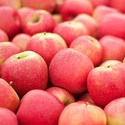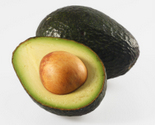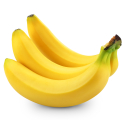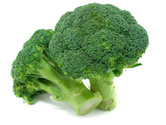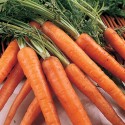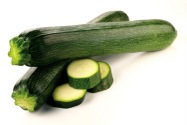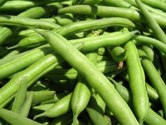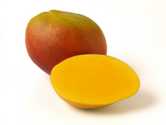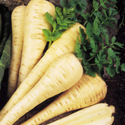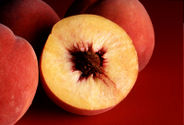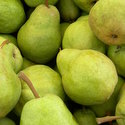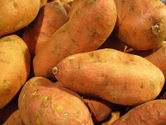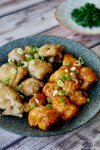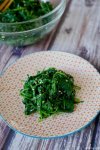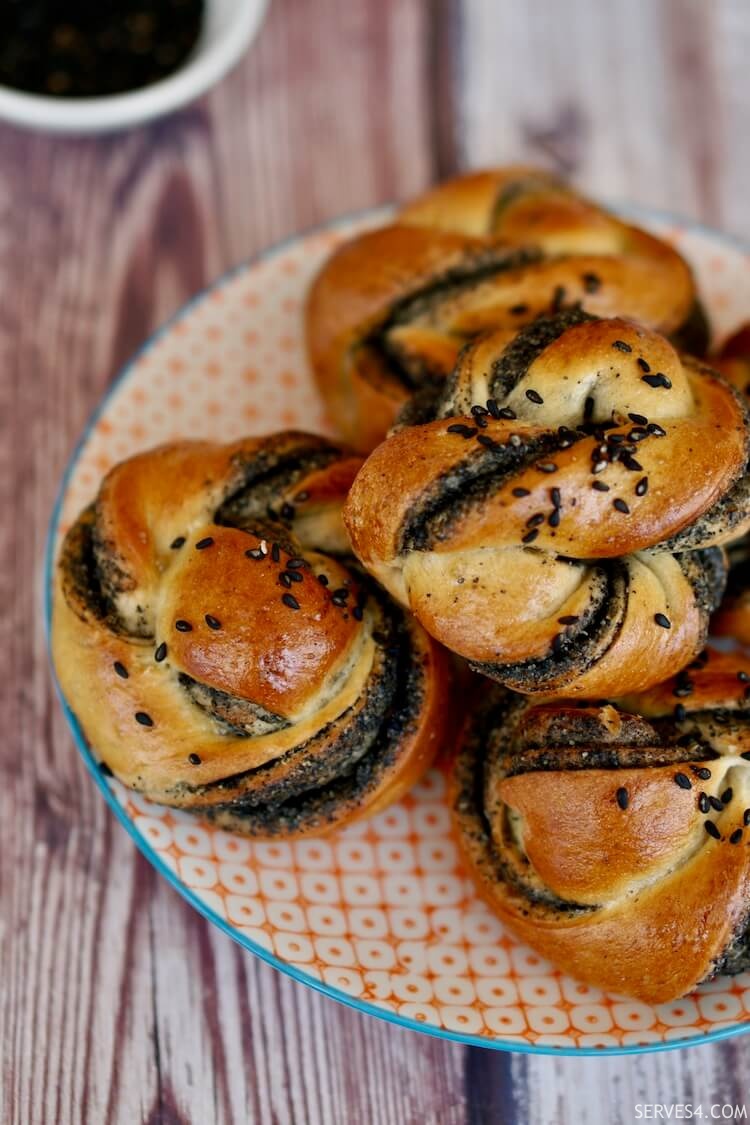Buying Food for Babies
This page may contain affiliate links, which means we receive a small commission for purchases made using the links. There is no additional cost to you. Please read our full disclosure policy.
Here are few helpful tips when it comes to buying food for babies. Whether you choose to shop in store or online, this page provides some general information about each type of food.
Obviously if you do shop online, you won’t be able to physically choose your produce, but this information should hopefully still give you a sense of what to look out for when assessing the quality of your fruits and vegetables.
The list below is by no means comprehensive, and you will almost certainly buy food for your baby that is not on the list. The aim of this page is to provide relevant information on the most popular introductory food for babies.
Happy shopping!
Index of Top Weaning Food for Babies
Apples
When buying apples, look for ones that feel firm and are free of bruises or blemishes. Avoid ones that are springy when squeezed or that have a loose stem that is mushy at the base, as this likely means there is rot in the core. Apples stay freshest in the refrigerator – store for up to 1 month.
Apples contain essential nutrients that help regulate blood sugar and prevent spikes. They are also much more satisfying in their whole form (versus as apple sauce or apple juice), so grated or chopped apple should be the preferred form of this food for babies.
Wash apples under cold running water before use, and only cut open just prior to use, as they brown very quickly once they have been cut. The browning can be slowed by squeezing a bit of lemon juice onto the exposed flesh.
Avocados
If you are lucky enough to live in a warm climate with access to ripe avocados for immediate consumption, choose ones without scars, soft spots or hollow pockets underneath the skin and ones that are firm but yield to gentle pressure. For us unlucky ones, choose hard avocados that are slightly green and unblemished for ripening at home.
Store unripe avocados at room temperature. You can speed the ripening process by storing them in a paper bag, wrapping them in newspaper, or placing them next to your bananas in the fruit basket (bananas contain a natural ripening agent)! Once ripe, avocados can be stored in the refrigerator for up to 5 days.
Avocados provide all 18 essential amino acids necessary for the body to form a complete protein, and are readily absorbed by the body due to its fibre content – a fantastic super food for babies. The nutrients in avocados are concentrated in the green flesh closest to the skin, so make sure you scrape the skin clean.
Wash avocados in cold water before using. Avocados brown quickly when exposed to air, so use immediately after cutting open, or squeeze some fresh limejuice on it to slow the browning and store for later.
Bananas
When buying bananas for immediate consumption, look for ones that are bright yellow with green tips and that feel plump and firm to the touch. Avoid those with bruises, blemishes or split or sunken skin. Bananas can also be bought green for ripening at home.
Bananas should be stored at room temperature. Their self-contained and easy-to-serve nature make them a great snacking food for babies. Peel bananas before storing any leftover in the refrigerator or freezer.
Bananas are one of the best natural sources of potassium, an essential mineral for maintaining normal blood pressure and heart function. They are also a natural antacid and can help replenish the body with important electrolytes after, say, a bout of severe diarrhoea (as babies are prone to suffer!).
Broccoli
Choose broccoli that is deep green in colour, firm with closed florets and odourless. Avoid yellow broccoli with open florets and broccoli that is soft and slippery. Broccoli should be stored in the refrigerator and used within 3-5 days to maintain its freshness.
Cut washed broccoli into florets and the stalk into pieces before cooking. The outer layer of the stalk can first be removed with a paring knife or vegetable peeler, if desired. Broccoli can also be frozen for up to 12 months for later use. Steam for five minutes, plunge into iced water to stop the cooking, drain thoroughly and place in sealed plastic bags.
Broccoli is an amazing super food with numerous health benefits. When eaten steamed, it is especially beneficial at lowering cholesterol levels. In addition to being a great detoxification aid for our bodies, broccoli can also help us replenish the body’s vitamin D stores and more! Providing benefits all around, broccoli is a fantastic food for babies.
Carrots
Buy carrots that are smooth, firm and crisp, with deep colour and fresh green tops (if present). Avoid those with soft spots or those that are split, wilted or have begun to sprout. Dark colouring at the top is a sign of an old carrot.
Carrots can be stored in the refrigerator for up to 2 weeks. Wash them just before use by scrubbing gently under cold running water to remove all surface dirt. Trim the ends, and peel before cooking for smaller babies; you can leave carrots unpeeled for older babies, if desired. Cut out any blemishes with a small knife.
Carrots are rich in the antioxidant nutrient beta-carotene, the source of their name. The deep orange-coloured ones provide particular protection against cardiovascular risk. There have also been some studies to show that regular consumption of carrots can benefit human eye health, making carrots an important food for babies with developing eyesight.
Courgettes (Zucchini)
Look for firm, smooth, shiny and unblemished courgettes that are not too long (maximum 15cm / 6inches) or skinny (should be 3-5cm / 1-2inches in diameter). Avoid courgettes that are too long or big, or that are soft with cuts and/or blemishes.
Store courgettes for up to 5 days in the refrigerator. If they begin to wilt, use immediately. Wash courgettes before use, although there is no need to peel them. Courgettes can be frozen for up to 12 months by first slicing them into rounds, then boiling for 2 minutes, plunging into cold water, and finally draining and sealing into airtight plastic bags.
You may not have expected it, but courgettes (and other summer squash) are rich in antioxidant nutrients, which are concentrated in their skin. Coupled with their delicate texture and creamy flesh, they are an ideal food for babies. Steaming courgettes is the best way of cooking them for maximum nutrient retention.
Green Beans
Green beans should be brightly coloured and firm, and should snap easily when bent. Avoid ones that have visible seeds or blemishes, or those that are stiff or shrivelled. Store green beans in the refrigerator for up to 1 week, although if they begin to shrivel, use immediately.
Rinse green beans well under cold running water, trim both ends and cook. Leave beans whole to retain their sweetness and crispness, although older beans may need to have their strings removed or be sliced lengthwise for ease of chewing.
Not only are green beans rich in beneficial antioxidant nutrients, but they are also an excellent source of the mineral silicon – very important for bone health and for the healthy formation of connective tissue. Green beans are thus a very good food for babies and their rapidly growing bones. Canned green beans lose a lot of nutrients during the canning process, so stick to fresh or frozen forms.
Mangos
If you are lucky enough to buy ripe mangos that are ready for eating, make sure they yield to gentle pressure and do not have bruises, blemishes or dark spots. Ripe mangos will also smell fragrant. For most of us buying unripe mangos, purchase them hard, and speed up the ripening process at home by placing them in paper bags or wrapping with newspaper.
Ripe mangos can be stored in the refrigerator for up to 3 days. They can also be frozen for up to 3 months by first peeling and chopping the mango into small chunks, then placing them into small plastic bags. Wash mangos under cold running water just before use.
Mangos are packed with antioxidant and other beneficial nutrients, including vitamins A and C and folate, which support healthy vision, immune and neurological functions. Consumption of folate during pregnancy can also reduce the risk of having a child with brain and spinal cord defects. Mangos are not only a delicious, but also a nutritious, food for babies.
Parsnips
Look for parsnips that are firm and about 13 to 25 cm or 5 to 10 inches in length. Avoid ones with soft or dark spots. Parsnips can be stored in the refrigerator for up to 2 weeks.
Wash parsnips in cold running water, and cut off both ends before eating. Trim any rootlets or knobs, and peel with a vegetable peeler, if desired, before cooking.
Parsnips are rich in antioxidant nutrients, vital for maintaining good health. They are an excellent source of the mineral copper, which helps form haemoglobin and keep bones, blood vessels and nerves healthy.
Parsnips are also packed with potassium, essential for maintaining healthy muscles. Despite their simple appearance, parsnips are an all around great food for babies.
Peaches
When buying peaches, look for ones that are firm, fuzzy and yield to gentle pressure. Avoid blemished or bruised peaches, and ones that have any hint of green, as this is a sign that they will not ripen.
Ripe peaches can be stored at room temperature for up to 2 days or in the refrigerator for up to 5 days. Ripen peaches by placing them in a paper bag or wrapping them in newspaper – they can ripen quite quickly, often within a day, so watch them closely! Wash peaches under cold running water just before use.
Peaches provide many nutrients, including vitamins A, C and E, and the minerals potassium and iron, important for healthy blood functions. Not only are they a tasty fruit eaten on their own, but peaches can also be cooked into savoury dishes as a complement to chicken or pork, making them a very versatile food for babies.
Pears
When buying pears, look for ones that are firm without bruises or spots. Store pears at room temperature until ripe, when the skin near the stem yields to gentle pressure. You can speed the ripening process by placing pears in a paper bag, or by wrapping them in newspaper. Once ripe, pears can be refrigerated for up to 3 days.
Pears are high in dietary fibre (concentrated in the skin), vitamins C and K, and are a particularly good food for babies when they are constipated. Their skins are also a very good source of antioxidant and anti-inflammatory nutrients, and provide potential anti-cancer benefits as well. Pears have also been shown to decrease the risk of diseases such as heart disease and type 2 diabetes.
Wash pears under cold running water just before use. Pears brown very quickly once they have been cut open, so do not cut up a pear until just before you are ready to use it. You can slow the browning by squeezing a bit of fresh lemon juice onto the flesh.
Sweet Potatoes
Look for sweet potatoes that are firm with smooth skin, and avoid ones with soft spots, cuts or blemishes. Sweet potatoes can be stored in a dark, cool, and well-ventilated environment for up to 1 month, but cook them immediately if they begin to show signs of wilting or softening.
The sweetness of cooked sweet potatoes is often a favourite amongst babies, but orange-fleshed sweet potatoes are one of nature’s best sources of beta-carotene, making this favourite a healthy food for babies, as well. Studies have shown sweet potatoes to have superior ability in raising blood levels of vitamin A, particularly for children. Include some fat and/or oil when cooking sweet potatoes to maximise the beta-carotene benefits.
Scrub sweet potatoes in cold water before cooking. Although the skin is edible, it is advisable to peel sweet potatoes before cooking for babies, as they may find the skin too tough to chew.
What's on your mind?
Let us know any thoughts, comments or questions by getting in touch here.

